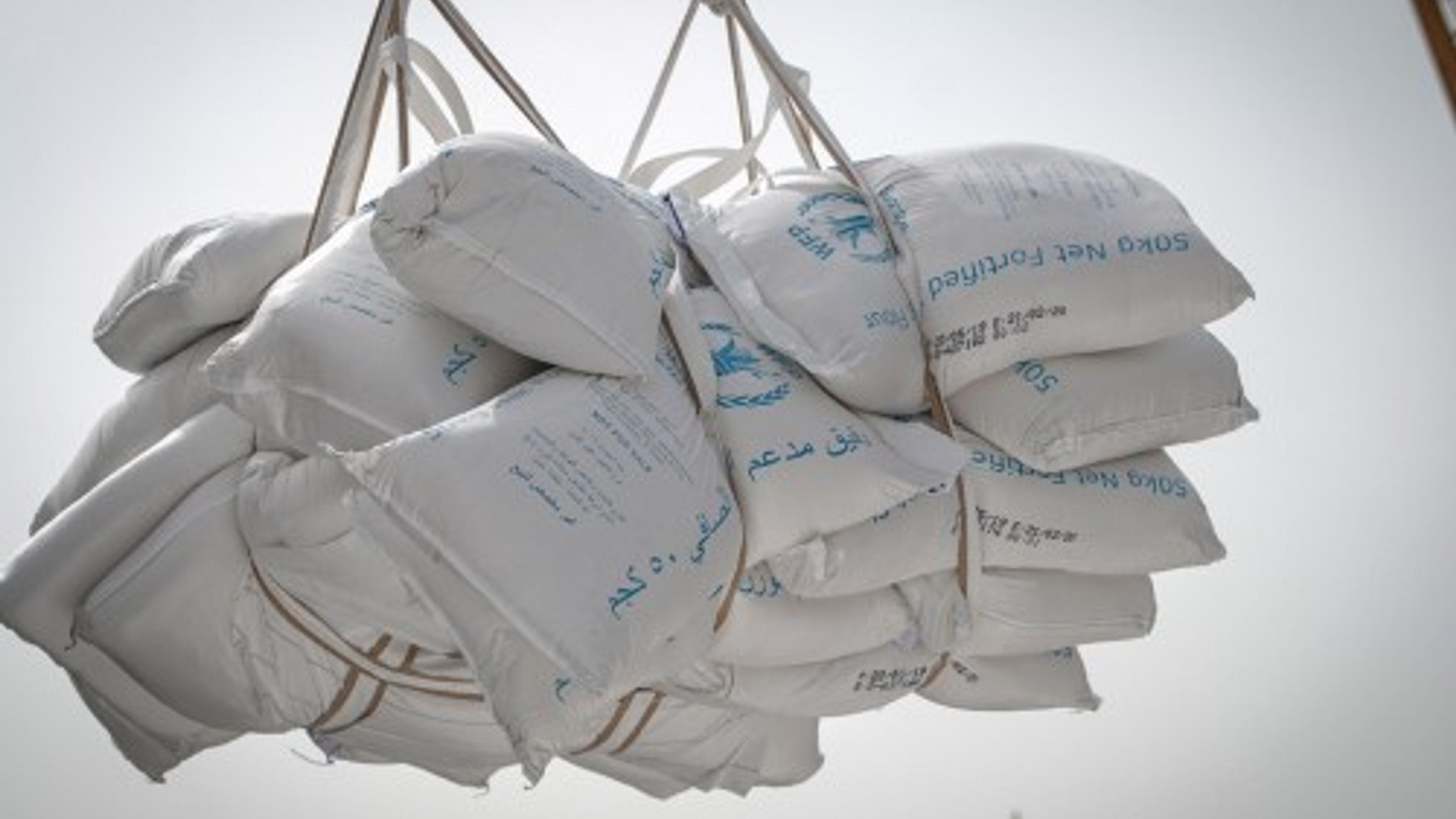Finding a sustainable alternative to the polypropylene bag
 © WFP/Saleh Baholis
© WFP/Saleh BaholisWhat is the humanitarian challenge?
The use of plastics in humanitarian operations is an example of the high social and environmental cost of acute, short-term emergency responses. Plastic is used in many different forms across all humanitarian activities. It is flexible, durable, light in weight and inexpensive. The bags can technically be recycled, unless they are in a poor state deriving from storing outside for a long time, which means that almost all of them aren’t recycled. Beneficiaries usually give a second purpose to these bags after their first use, for example to carry and store products, to make ropes and belts, etc. But in the end the polypropylene from these bags either degrades to micro-particles, causing plastic pollution, or it is eventually burned in open-pit fires, causing dangerous fumes for both humans and animals.
What is innovative about this project?
The aim of this project is to create a new sustainable packaging solution, reducing the waste of polypropylene. Project partners will seek to develop/prototype alternative materials based on existing research, such as cellulose, starch, biomimicry, etc. Three alternative materials will be selected for a field trial. The project will also explore the industrialization steps of any new packaging material, with producers with an economic model.
What are the expected outcomes?
The project will conduct tests in real conditions of usage, and encourage the scaling up of the pilot project to an industrial level. The aim is to eventually replace the polypropylene woven bag with packaging made of a more sustainable material.
Who are the project partners?
The project is in partnership between the Norwegian Red Cross, the International Commitee of the Red Cross (ICRC) the World Food Programme (WFP) and the UN High Commissionaire for Refugees (UNHCR).
The consortium will go through an innovative procurement process to find a private partner.